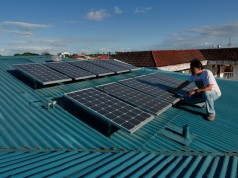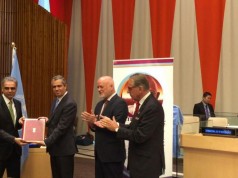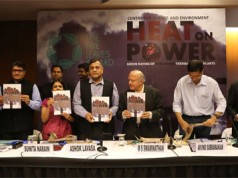Mounting Subsidies: High Opportunity Cost, Weak Targeting
Utilities face pressure to provide below-cost power to agricultural and rural residential consumers for which they are reimbursed through subsidy payments by state governments. However, currently, 37% of the subsidies booked by state utilities are not paid to them. Since 2003, in fact, subsidies booked have grown by 12% per year, and subsidies received by 7% per year; the cumulative gap between them was Rs. 466 billion (US $ 10 billion) for 2003-11. This has had a crippling effect on the already struggling financials of the utilities, the report says.
“State financial support, which has become essential to keep many utilities afloat, has a high opportunity cost. Our study estimates that 15,000 hospitals and 123,000 schools could have been developed in 2011 if the power sector had not pre-empted these funds. Our recommendation is that states should compensate their utilities if they are required to provide free or below cost power to specific consumer categories,” said Sudeshna Ghosh Banerjee, Senior Economist and co-author of the report.
The report also highlights the need for better targeting of domestic subsidies. Lack of effective targeting of such subsidies has led to anomalies such as economically weaker sections of the population ending up paying more for consuming less power. In fact, in 2010 some 87% of the domestic electricity supplied India-wide was subsidized. Over half of subsidy payments (52%) India-wide went to the richest 40% of households in the country in 2010, the report says.
Key Recommendations
- State governments should pay subsidies transparently, fully, and on time, when they mandate free power supply. They must also improve the targeting of subsidies so resources are not wasted and actually reach the poor.
- Utilities must be freed from government interference and their management professionalized. Despite corporatization, utility boards remain state-dominated and are rarely evaluated on performance.
- Banks/lenders should hold utilities accountable for efficient operation and not lend to those that are not credit-worthy.
- Regulators should transparently revise tariffs in line with efficient costs, hold utilities to service standards, and create a predictable environment for decision-making.
- Consumers need to pay for the power they use, and hold regulators and state governments accountable for quality of power they supply.
- Central government should pledge no future bailouts, give regulators autonomy and adequate resources, and hold them accountable for their performance. It should also allow competition to create pressure for efficient operation, and promote rural access to electricity in a financially responsible manner.
Click here to read/download the Full Study.
Source: The World Bank.













